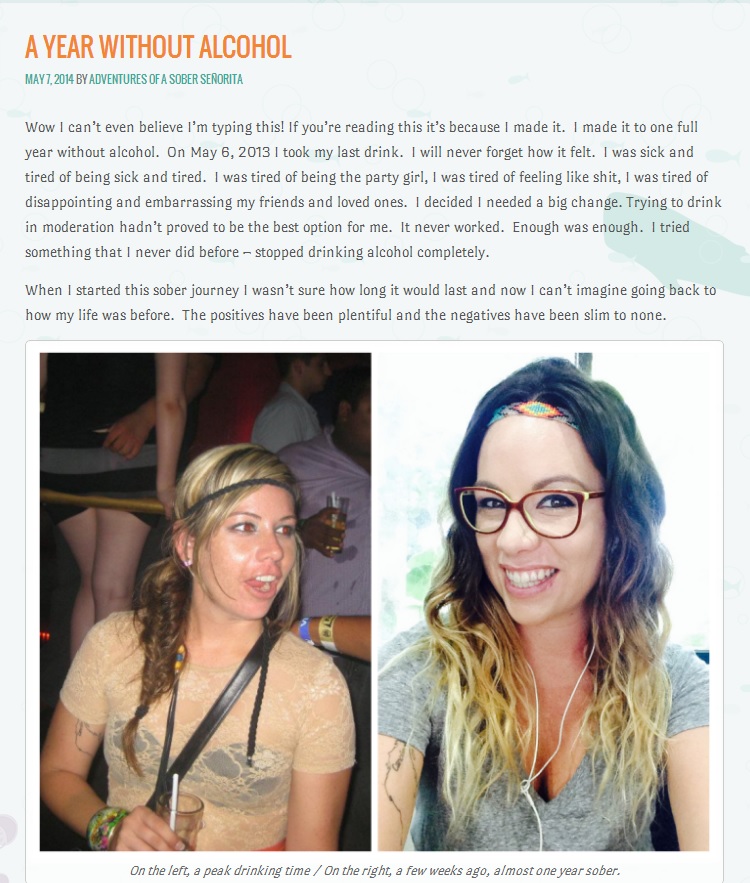Kelly Fitzgerald, known in her blog as the “Sober Señorita,” saw a big change in her life a year after her last chug of liquor. There came a point when she grew tired of being an alcohol-ridden party girl, and made the big change. While the year-long dramatic change is evident in her photos, the changes actually go deep down.
As Kelly relates, a year without alcohol gave her the following:
Heightened Senses
“My nose is so sensitive to smells I am ALWAYS saying “it smells like ___ in here”, or whoa, it smells SO strong. My emotions are crazy, sometimes I think this is what it must feel like to be pregnant. I cry at the drop of a hat, I’m offended easily, and sometimes I am so happy I feel like I’m going to burst.”
The first few hours or days after your last drink can often enhance your senses. Alcohol is both a stimulant and depressant depending on the amount you take and your blood alcohol content, which is something that can affect your senses. The absence of alcohol can thus help in normalizing your sense organ’s functions.
More Powerful Than Moderation
“I had been trying and failing for years to regulate my drinking. I’m only going to drink two, ok three, just on the weekends. It never worked and I finally figured out why – I’m not a person who can ingest alcohol.”
Quitting is often a last-ditch effort to curb alcoholism; it’s easy to lose control and hard to regain it. In some cases, moderation succeeds in keeping the craving under control; but chances are the addiction would kick in again if the person fails to contain it. A St. Louis rehab program for alcoholism focuses on helping their clients quit the addictive substance altogether.
Reveals True Friends
“When you make a big life decision like admitting you have an alcohol problem and decide to to stop drinking, you really find out who your true friends are.”
The first step in solving any problem is admitting that there is one. When a person does, his true friends will unconditionally help him overcome his problem (but it’s still up to him to deliver the coup de grace). According to clinical psychologist Leslie Becker-Philips, denying the problem is a defense mechanism a person adopts to cope with a hurtful reality.
Overall, Fitzgerald is doing better than ever, but her sober journey continues. You can do it alone with enough willpower, but you’ll need help at some point. Don’t hesitate to go to St. Louis rehab centers like the Midwest Institute for Addiction to help you get through the sobering process with care and understanding.
(Source: “A Year Without Alcohol,” The Adventures of a Sober Señorita, May 7, 2014)











